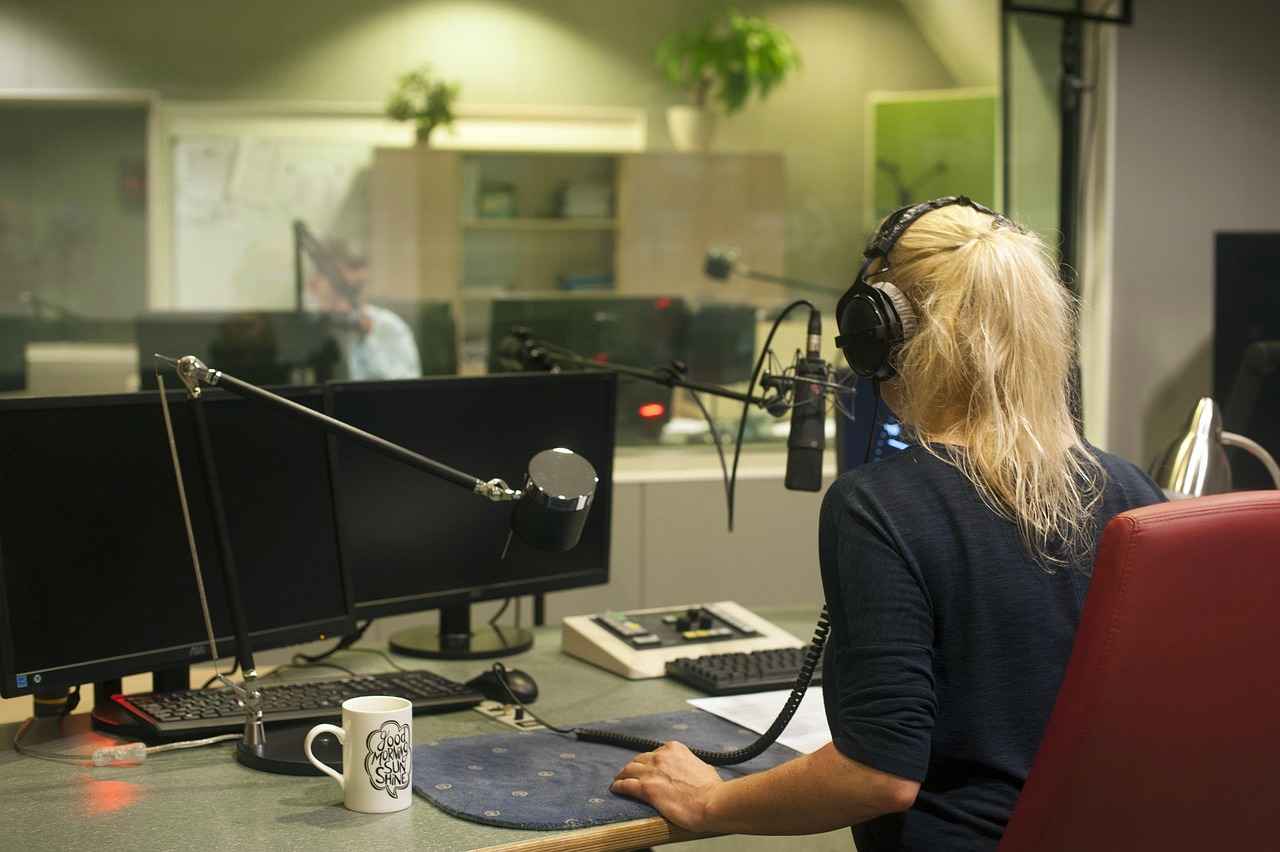This article serves as a comprehensive guide for beginners seeking part-time remote jobs in marketing. It covers essential strategies, platforms, and tips to secure a position in this dynamic field.
As the marketing landscape continues to evolve, understanding its various segments is crucial. Marketers can specialize in digital marketing, content creation, social media management, and search engine optimization (SEO). Identifying your interests within these areas can help align your job search with your passions and strengths.
Essential Skills for Marketing Beginners
- Communication Skills: Effective communication is vital in marketing. You should be able to articulate ideas clearly and engage with audiences across different platforms.
- Analytical Skills: Understanding data and interpreting metrics will help you measure campaign performance and make informed decisions.
- Creativity: The ability to think outside the box is essential for developing engaging marketing strategies.
Where to Search for Part-Time Remote Marketing Jobs
Utilize job boards such as Indeed, Glassdoor, and niche sites like We Work Remotely to find listings tailored to remote positions. Additionally, networking through platforms like LinkedIn can uncover hidden opportunities.
Crafting a Compelling Resume
Your resume should highlight relevant experiences, such as internships or freelance work, that showcase your marketing skills. Tailor your resume for each application to match the job requirements.
Preparing for Remote Job Interviews
Ensure your technology is set up correctly for video conferencing and familiarize yourself with the tools you will use. Maintain a professional appearance and practice good interview etiquette.
Building a Strong Online Presence
Establishing a professional online presence is crucial. Utilize social media platforms to share industry-related content and create a personal portfolio to showcase your work.
Tips for Success in Remote Marketing Roles
- Time Management: Prioritize tasks and use productivity tools to enhance efficiency.
- Establishing Boundaries: Set clear boundaries to maintain a healthy work-life balance.
Conclusion: Your Path to Remote Marketing Success
In summary, securing a part-time remote job in marketing requires a blend of skills, strategic job searching, and effective personal branding. By staying persistent and adaptable, you can navigate the remote marketing landscape successfully.

Understanding the Marketing Landscape
The field of marketing is vast and continually evolving, offering numerous opportunities for those looking to enter this dynamic industry. Gaining insight into the various branches of marketing is essential for identifying where your interests align with potential job opportunities. Below, we will explore some of the key areas within marketing, providing a clearer picture of what each entails.
- Digital Marketing: This encompasses all online marketing efforts. Digital marketing includes strategies such as email campaigns, pay-per-click advertising, and search engine marketing. It is crucial for businesses aiming to reach a broader audience online.
- Content Marketing: Focused on creating valuable content to attract and engage a target audience, content marketing involves blogs, videos, infographics, and more. It is an effective way to build brand awareness and loyalty.
- Social Media Marketing: This area involves promoting products or services through social media platforms like Facebook, Instagram, and Twitter. Understanding how to engage users and create shareable content is vital in this field.
- Search Engine Optimization (SEO): SEO is the practice of optimizing a website to rank higher in search engine results. Knowledge of SEO techniques can significantly boost a company’s online visibility and traffic.
By exploring these diverse fields, you can better identify your interests and strengths, helping you to align them with job opportunities in marketing. Whether you are drawn to the creative aspects of content creation or the analytical side of SEO, there is a place for you in the marketing landscape.
As you navigate this journey, remember that each branch of marketing offers unique challenges and rewards. With the right skills and passion, you can carve out a successful career in this exciting field.

Essential Skills for Marketing Beginners
In today’s competitive job market, especially in the realm of remote work, possessing the right skills is essential for anyone looking to break into the field of marketing. This article explores the fundamental skills that can enhance your employability and set you apart from other candidates.
- Communication Skills: Effective communication is at the heart of marketing. It encompasses both written and verbal communication. Mastering these skills allows you to convey ideas clearly and engage with your audience effectively. Whether it’s crafting compelling content for blogs or presenting ideas during virtual meetings, strong communication skills are invaluable.
- Analytical Thinking: In marketing, data is your best friend. Being able to analyze data helps you understand market trends, measure campaign performance, and make informed decisions. This skill enables you to optimize strategies and improve overall effectiveness, which is crucial in a data-driven environment.
- Creativity: Creativity is essential for developing innovative marketing campaigns that capture attention. It involves thinking outside the box and coming up with unique ideas that resonate with the target audience. Whether it’s designing eye-catching graphics or brainstorming engaging social media content, creativity plays a key role in marketing success.
- Adaptability: The marketing landscape is constantly evolving, particularly with the rapid advancement of technology. Being adaptable allows you to stay relevant and embrace new tools and platforms that can enhance your marketing efforts.
- Team Collaboration: Marketing often requires working with cross-functional teams. Being a team player and collaborating effectively with others ensures that campaigns are executed smoothly and that diverse perspectives are incorporated into the marketing strategy.
By honing these essential skills, you will not only improve your employability in the remote job market but also position yourself as a valuable asset to potential employers. Continuous learning and development in these areas can significantly enhance your career prospects in marketing.
Communication Skills
In the fast-paced world of marketing, effective communication is not just an asset; it is a necessity. The ability to convey ideas clearly and persuasively can significantly impact your success in this field. As a beginner in marketing, honing your communication skills will enable you to engage with diverse audiences across various platforms.
Importance of Clear Articulation
Articulating your ideas clearly is essential for creating impactful marketing campaigns. Whether you are writing content for social media, crafting emails, or developing blog posts, clarity ensures that your message resonates with your audience. Miscommunication can lead to misunderstandings, which may hinder your marketing efforts.
Engaging with Your Audience
Engagement is at the heart of successful marketing. Understanding your audience’s needs and preferences allows you to tailor your messages effectively. Utilize social media platforms to interact with followers, respond to comments, and create a dialogue. This not only builds trust but also fosters a sense of community around your brand.
Utilizing Email Marketing
Email marketing remains a powerful tool for direct communication. Crafting persuasive emails requires a blend of creativity and strategic thinking. Focus on creating compelling subject lines, concise content, and clear calls to action. Remember, the goal is to drive engagement and prompt responses from your recipients.
Mastering Written Communication
In a remote working environment, written communication becomes even more critical. It is vital to master the art of concise and engaging writing to maintain the attention of your audience. Use bullet points, short paragraphs, and visuals to break up text and enhance readability.
Verbal Communication Skills
While written communication is essential, verbal communication should not be overlooked. Virtual meetings and presentations are common in remote marketing roles. Developing strong verbal skills will enable you to convey your ideas effectively and collaborate with team members seamlessly.
Conclusion
In conclusion, mastering communication skills is fundamental for anyone entering the marketing field. By focusing on clarity, engagement, and effective use of various mediums, you can position yourself for success in a competitive job market. Remember, continuous improvement in these skills will not only enhance your employability but also contribute to your overall effectiveness as a marketer.
Written Communication
plays a crucial role in the realm of marketing, especially in a remote work environment. Mastering this skill is essential for creating compelling content, crafting persuasive emails, and engaging effectively with clients or customers. In today’s digital age, where face-to-face interactions are limited, the ability to communicate clearly and effectively through written mediums has become even more significant.
Effective written communication allows marketers to convey their messages concisely and persuasively. This includes the ability to write engaging blog posts, create informative newsletters, and develop impactful social media content. Each piece of writing serves as a representation of the brand, influencing how potential customers perceive the business.
Moreover, in a remote setting, where team collaboration often relies on written communication tools such as emails, chat applications, and project management software, it is vital to articulate ideas clearly. Miscommunication can lead to misunderstandings, project delays, and ultimately, a negative impact on business outcomes.
To enhance your written communication skills, consider the following strategies:
- Practice Regularly: Writing consistently helps improve clarity and style. Set aside time each day to write, whether it’s a blog post, a marketing email, or social media updates.
- Read Widely: Exposure to different writing styles and formats can help you develop your own voice. Read industry-related articles, books, and reports to understand effective communication techniques.
- Seek Feedback: Share your writing with peers or mentors to receive constructive criticism. This feedback can provide insights into areas for improvement.
- Utilize Tools: Leverage grammar and style-checking tools to polish your writing. These tools can help identify errors and suggest improvements.
In conclusion, mastering written communication is not just a beneficial skill but a necessary one for anyone looking to succeed in marketing, especially in a remote work environment. By focusing on clarity, engagement, and continuous improvement, you can enhance your communication skills and effectively connect with your audience.
Verbal Communication
is a fundamental skill in today’s digital age, especially during virtual meetings and presentations. The ability to express ideas clearly and effectively can significantly enhance collaboration among team members, regardless of their physical location.
When participating in virtual meetings, it is crucial to articulate your thoughts in a manner that is both engaging and understandable. This involves not just speaking clearly, but also being mindful of your tone and pace. A confident voice can convey authority and help to maintain the attention of your audience. Furthermore, utilizing active listening techniques, such as paraphrasing and asking clarifying questions, can foster a more interactive and productive dialogue.
In presentations, verbal communication takes center stage as you aim to convey your message persuasively. Here are some key strategies to enhance your verbal communication skills during virtual presentations:
- Practice your delivery: Rehearse your presentation multiple times to gain familiarity with your content and improve your confidence.
- Engage your audience: Use rhetorical questions and encourage participation to keep your audience involved.
- Utilize visual aids: Supplement your verbal communication with slides or visuals to reinforce your message and maintain interest.
- Seek feedback: After your presentation, ask for constructive criticism to identify areas for improvement.
Moreover, adapting your communication style to suit your audience is essential. Different team members may have varying preferences for communication, and being flexible can enhance understanding and cooperation. In conclusion, honing your verbal communication skills is not just about speaking; it’s about creating a collaborative environment where ideas can flow freely, leading to more effective teamwork and successful outcomes.
Analytical Skills
are a cornerstone of success in the marketing field, particularly for those seeking part-time remote jobs. Developing these skills not only enhances your ability to interpret data but also empowers you to measure campaign performance effectively. In today’s data-driven marketing landscape, being able to analyze metrics and draw actionable insights is essential.
When you cultivate , you can:
- Understand Consumer Behavior: By analyzing data trends, you can gain insights into what drives customer decisions, allowing you to tailor your marketing strategies accordingly.
- Optimize Campaign Performance: With the ability to measure various campaign metrics, you can identify which strategies are working and which need adjustment, ensuring that resources are allocated efficiently.
- Make Informed Decisions: Data analysis provides a factual basis for decision-making, reducing reliance on gut feelings and increasing the likelihood of successful outcomes.
Moreover, as you delve deeper into analytical practices, you’ll become adept at using tools like Google Analytics, social media insights, and email marketing metrics. These platforms offer a wealth of information that, when properly interpreted, can significantly enhance your marketing efforts.
To further develop your analytical skills, consider the following strategies:
- Engage in Continuous Learning: Take online courses focused on data analysis and marketing analytics to stay updated with the latest tools and techniques.
- Practice Regularly: Apply your analytical skills to real-world scenarios, such as analyzing the performance of your own social media posts or email campaigns.
- Seek Feedback: Collaborate with peers or mentors who can provide insights and critiques on your analytical approach.
In conclusion, enhancing your analytical skills is crucial for navigating the complexities of modern marketing. By focusing on data interpretation and performance measurement, you position yourself as a valuable asset in the remote job market.

Where to Search for Part-Time Remote Marketing Jobs
In today’s digital age, finding part-time remote marketing jobs has become easier than ever, thanks to a variety of specialized platforms and job boards. This section aims to guide you through the most effective avenues to streamline your job search and connect with potential employers.
Top Job Boards for Remote Marketing Positions
- We Work Remotely: A popular platform dedicated to remote jobs, including a dedicated section for marketing roles.
- Remote.co: This site features a curated list of remote jobs in various fields, with marketing being a significant category.
- FlexJobs: A subscription-based service that offers access to vetted remote job listings, ensuring quality and legitimacy.
- SimplyHired: A broad job search engine that allows you to filter for remote marketing positions, offering a wide range of options.
- AngelList: Ideal for those looking to work in startups, AngelList lists remote marketing jobs in innovative companies.
Utilizing Networking Platforms
Networking is a powerful tool in the job search process. Platforms like LinkedIn allow you to:
- Connect with industry professionals and build a network.
- Join marketing groups to participate in discussions and share insights.
- Engage with potential employers through direct messaging or by commenting on their posts.
Social Media as a Job Search Tool
Don’t underestimate the power of social media. Platforms like Twitter and Facebook often feature job postings and groups dedicated to remote work opportunities. Following companies of interest can also keep you updated on their hiring processes.
Conclusion
By leveraging these platforms and networking opportunities, you can significantly enhance your chances of securing a part-time remote marketing job. Stay proactive, customize your applications, and engage with the community to find the right fit for your skills and aspirations.
Job Boards
are essential tools for anyone seeking part-time remote jobs in marketing. The digital landscape has transformed how we search for job opportunities, making it easier than ever to find roles that fit our skills and lifestyle. Here’s how to effectively utilize various job boards to uncover a wealth of remote marketing positions.
Start by exploring well-known platforms such as Indeed and Glassdoor. These sites aggregate job listings from numerous companies, providing a vast array of options. You can filter your search results by location, job type, and salary, making it easier to find roles that suit your specific needs.
In addition to general job boards, consider specialized websites dedicated to remote work. For instance, We Work Remotely focuses exclusively on remote job opportunities across various sectors, including marketing. This platform is particularly beneficial for those looking to find roles that allow for flexibility and a better work-life balance.
Another great resource is Remote.co, which not only lists job openings but also provides valuable insights into remote work culture. By visiting these sites regularly, you can stay updated on new listings and trends in the remote job market.
Don’t forget to leverage LinkedIn, a powerful networking platform. By connecting with industry professionals and joining marketing groups, you can gain access to job postings that may not be listed on traditional job boards. Engaging in discussions and showcasing your expertise can also lead to referrals and recommendations.
Lastly, consider subscribing to job alerts from these platforms. This feature allows you to receive notifications about new job postings that match your criteria, ensuring you never miss an opportunity. By effectively utilizing these job boards, you can streamline your job search and increase your chances of landing a rewarding part-time remote marketing position.
Networking Opportunities
In today’s competitive job market, particularly in the field of marketing, leveraging networking platforms can be a game-changer for beginners seeking part-time remote positions. One of the most effective tools at your disposal is LinkedIn, a platform designed specifically for professional networking and career development.
To maximize your chances of uncovering hidden job opportunities, consider the following strategies:
- Connect with Industry Professionals: Start by building your network. Send personalized connection requests to individuals in your desired field, including recruiters, marketing managers, and fellow job seekers. A well-crafted message can make a lasting impression.
- Join Marketing Groups: LinkedIn hosts numerous groups focused on marketing topics. By joining these groups, you can engage in discussions, share insights, and learn from experienced professionals. Active participation can also lead to job referrals and recommendations.
- Engage in Discussions: Don’t hesitate to contribute to conversations within your network. Sharing your thoughts on industry trends or commenting on posts can enhance your visibility and position you as a knowledgeable candidate.
- Follow Companies: Identify companies you are interested in and follow them on LinkedIn. This will keep you updated on their job postings and company news, allowing you to tailor your applications accordingly.
- Utilize Job Alerts: Set up job alerts on LinkedIn for specific marketing roles. This proactive approach ensures you receive notifications about new job postings that match your criteria, giving you a competitive edge.
By actively engaging with the LinkedIn community, you can uncover valuable insights and connections that may not be advertised publicly. Remember, networking is not just about seeking opportunities; it’s also about building relationships that can support your career growth.
In conclusion, utilizing networking platforms like LinkedIn effectively can significantly enhance your job search in marketing. By connecting with professionals, joining relevant groups, and participating in discussions, you can open doors to hidden job opportunities that align with your career aspirations.

Crafting a Compelling Resume
is an essential step for anyone looking to secure a remote position in marketing. A well-structured resume not only showcases your qualifications but also reflects your understanding of the industry and your ability to communicate effectively. In this section, we will explore key strategies to create a standout marketing resume that highlights your skills, experiences, and achievements, specifically tailored for remote job applications.
When applying for remote marketing jobs, it’s crucial to emphasize your relevant experience. This includes internships, freelance projects, and any volunteer work that demonstrates your marketing capabilities. Highlighting these experiences not only showcases your skills but also illustrates your ability to work independently, a vital trait for remote positions.
- Internships: Detail your responsibilities and the impact of your contributions.
- Freelance Projects: Include specific results, such as increased engagement or sales.
- Volunteer Work: Show how you utilized marketing skills to benefit organizations.
Another important aspect is customizing your resume. Tailor your resume for each job application by aligning your skills and experiences with the specific requirements outlined in the job description. This demonstrates your attention to detail and genuine interest in the position.
Consider using a clean, professional format that is easy to read. Use bullet points for clarity and ensure that your contact information is prominently displayed. Additionally, including a brief summary statement at the top can provide a snapshot of your qualifications and career goals, making it easier for hiring managers to see your potential fit for the role.
Finally, don’t forget to proofread your resume carefully. Spelling and grammatical errors can undermine your professionalism and attention to detail. A polished resume will leave a strong impression and increase your chances of landing an interview.
In conclusion, crafting a compelling resume is not just about listing your experiences; it’s about presenting yourself as the ideal candidate for remote marketing roles. By focusing on relevant experiences, customizing your application, and ensuring professionalism, you can create a resume that stands out in a competitive job market.
Highlighting Relevant Experience
When crafting your resume for a part-time remote marketing position, it is crucial to emphasize any internships, volunteer work, or freelance projects that can effectively showcase your marketing skills. These experiences not only demonstrate your practical knowledge but also highlight your ability to work independently, a key trait sought after by employers in the remote work landscape.
- Internships: Any internship experience, whether paid or unpaid, can significantly enhance your resume. Focus on specific projects you undertook, the skills you developed, and the results you achieved. For example, if you managed a social media campaign during your internship, detail how you increased engagement or followers.
- Volunteer Work: Volunteer positions can provide invaluable experience and demonstrate your commitment to the field. Highlight any marketing-related tasks you performed, such as creating promotional materials or organizing events for non-profit organizations. This shows potential employers your willingness to contribute and learn.
- Freelance Projects: Freelancing allows you to gain hands-on experience while working independently. Include details about your clients, the services you provided, and any measurable outcomes from your projects. For instance, if you helped a small business improve their website traffic, mention the percentage increase you achieved.
By strategically presenting these experiences, you can create a compelling narrative that showcases not just your skills, but also your initiative and ability to succeed in a remote marketing role. Remember to tailor your descriptions to align with the specific requirements of the job you are applying for, ensuring that your resume stands out in a competitive job market.
Customizing Your Resume
When applying for a job, particularly in a competitive field like marketing, it is essential to customize your resume for each application. This process involves aligning your skills and experiences with the specific requirements outlined in the job description. By doing so, you not only enhance your chances of catching the employer’s attention but also demonstrate your genuine interest in the position.
To effectively tailor your resume, start by carefully reviewing the job description. Identify key skills and qualifications that the employer emphasizes. These may include specific software proficiency, industry-related experience, or particular soft skills. Once you have pinpointed these elements, adjust your resume to highlight your relevant experiences that correspond to those requirements.
- Use Keywords: Incorporate keywords from the job description into your resume. This not only helps in passing through Applicant Tracking Systems (ATS) but also shows the employer that you possess the necessary qualifications.
- Highlight Relevant Experience: If you have previous roles or projects that align with the job responsibilities, make sure to emphasize them. Use bullet points to clearly outline your achievements and contributions in those roles.
- Focus on Skills: Tailor the skills section of your resume to reflect those mentioned in the job posting. If the employer is looking for someone with excellent communication skills, provide examples of how you have successfully communicated in past roles.
Additionally, consider the format and design of your resume. Ensure it is visually appealing and easy to read. A well-structured resume can make a strong first impression, so utilize headings, bullet points, and white space effectively.
In conclusion, customizing your resume is a crucial step in the job application process. By aligning your skills and experiences with the job description, you can significantly improve your chances of landing an interview. Remember, a tailored resume not only showcases your qualifications but also reflects your dedication to the prospective employer.

Preparing for Remote Job Interviews
In today’s digital age, remote job interviews have become increasingly common, presenting unique challenges and opportunities for candidates. Understanding the intricacies of these interviews is crucial for success. This guide will cover essential aspects, including technology setup, communication etiquette, and effective self-presentation in a virtual environment.
Technology Setup
- Reliable Internet Connection: Ensure you have a stable internet connection to avoid disruptions during the interview.
- Familiarity with Tools: Get comfortable with video conferencing platforms like Zoom or Microsoft Teams. Test your microphone and camera beforehand.
- Professional Background: Choose a quiet, well-lit space with a neutral background to minimize distractions and present a professional image.
Communication Etiquette
- Punctuality: Log in a few minutes early to show respect for the interviewer’s time.
- Maintain Eye Contact: Look at the camera while speaking to create a connection, rather than staring at the screen.
- Active Listening: Nod and respond appropriately to show you are engaged and interested in the conversation.
Presenting Yourself Effectively
- Dress Professionally: Wear professional attire as you would for an in-person interview to convey seriousness and respect.
- Body Language: Sit up straight and use appropriate gestures to emphasize points, making sure your body language is open and inviting.
- Practice Responses: Prepare for common interview questions and rehearse your answers to communicate clearly and confidently.
In conclusion, mastering the nuances of remote job interviews can significantly enhance your chances of landing your desired position. By focusing on technology setup, adhering to communication etiquette, and presenting yourself effectively, you can navigate the virtual interview landscape with confidence.
Technical Setup
In today’s digital age, mastering the art of remote interviews is essential, particularly for those seeking part-time positions in marketing. One of the most critical aspects of this process is ensuring that your technology is both reliable and familiar. Here are several key points to consider:
- Choose the Right Video Conferencing Tool: Familiarize yourself with popular platforms such as Zoom, Microsoft Teams, or Google Meet. Each tool has unique features, so take the time to explore their functionalities.
- Test Your Equipment: Before the interview, conduct a test run of your computer, webcam, and microphone. Ensure that your internet connection is stable to avoid interruptions during the interview.
- Optimize Your Environment: Select a quiet, well-lit space for your interview. A neutral background can help maintain a professional appearance, while good lighting can enhance your visibility on camera.
- Dress Professionally: Even though the interview is remote, dressing appropriately can boost your confidence and present a professional image to your interviewers.
- Have a Backup Plan: In case of technical difficulties, be prepared with a backup device or a phone number to call the interviewer. This shows your adaptability and commitment.
By taking these steps, you not only create a professional appearance but also demonstrate your preparedness and seriousness about the opportunity. Remember, the goal is to make a lasting impression, and a well-executed technical setup can significantly contribute to that.
Interview Etiquette
is a crucial aspect of succeeding in remote job interviews, particularly in the marketing field. As the job market becomes increasingly competitive, understanding the dos and don’ts can significantly enhance your chances of making a positive impression. Below are some essential guidelines to follow.
- Punctuality: Arriving on time for your interview is vital, even in a remote setting. Aim to log in at least five to ten minutes early to ensure that your technology is functioning correctly and to show respect for the interviewer’s time.
- Maintaining Eye Contact: During video interviews, it can be tempting to look at the screen instead of the camera. To create a connection, try to look directly at the camera when speaking. This helps convey confidence and engagement.
- Dressing Appropriately: Even though you are interviewing from home, dressing professionally is essential. Choose an outfit that you would wear to an in-person interview. This not only boosts your confidence but also shows your commitment to the role.
- Minimizing Distractions: Ensure that your environment is quiet and free of interruptions. Inform others in your household about your interview time to avoid unexpected distractions.
- Active Listening: Demonstrating that you are listening actively is key. Nod and respond appropriately to the interviewer’s questions, and avoid interrupting them. This shows that you value their input.
By adhering to these guidelines, you can foster a professional atmosphere that enhances your chances of success in remote interviews. Remember, first impressions are lasting, and the effort you put into your interview etiquette can make all the difference.

Building a Strong Online Presence
is essential in today’s digital age, especially for those looking to attract potential employers. Establishing a professional image online can significantly enhance your job prospects, particularly in competitive fields like marketing.
To begin with, social media platforms such as LinkedIn, Twitter, and Instagram play a crucial role in personal branding. These platforms allow individuals to showcase their skills, experiences, and interests, making it easier for employers to find and connect with potential candidates. By regularly sharing industry-related content, engaging with peers, and participating in discussions, you can position yourself as a knowledgeable professional in your field.
- LinkedIn: Optimize your profile with a professional photo, a compelling summary, and a detailed list of your skills and experiences.
- Twitter: Follow industry leaders, share relevant articles, and engage in conversations to expand your network.
- Instagram: Use this platform to visually showcase your creative projects or marketing campaigns.
In addition to social media, creating a personal portfolio is an effective way to demonstrate your work. This online portfolio can include case studies, marketing projects, and any freelance work you’ve completed. A well-organized portfolio not only highlights your skills but also reflects your creativity and professionalism.
Moreover, maintaining a consistent online presence is vital. Regular updates, whether through blog posts, articles, or social media activity, keep your profile active and engaging. This consistency helps build your brand and keeps you on the radar of potential employers.
In conclusion, by leveraging social media, creating an impressive portfolio, and staying active online, you can significantly enhance your professional presence. Remember, the goal is to attract potential employers by showcasing your unique skills and experiences effectively.
Utilizing Social Media
In today’s digital age, leveraging social media platforms is essential for anyone looking to make their mark in the marketing field. Platforms such as LinkedIn and Twitter offer unique opportunities to connect with industry professionals, share valuable content, and establish your personal brand.
Firstly, LinkedIn serves as a powerful networking tool. By creating a comprehensive profile that highlights your skills and experiences, you can attract potential employers and collaborators. Engage with industry-related content by liking, commenting, and sharing posts. This not only demonstrates your knowledge but also positions you as an active participant in the marketing community.
Moreover, joining relevant groups on LinkedIn can provide access to exclusive job postings and discussions. Participating in these groups allows you to ask questions, seek advice, and share your insights, further solidifying your presence in the industry.
On the other hand, Twitter is ideal for real-time engagement and staying updated with the latest trends. Follow key influencers and brands in the marketing space, and contribute to conversations by using popular hashtags. By sharing your thoughts on current events or marketing strategies, you can showcase your expertise and connect with like-minded individuals.
Additionally, consider creating a content calendar for your social media posts. This will help you maintain consistency and ensure that you are regularly sharing insightful and relevant content. Utilize tools like Canva to create visually appealing graphics that can enhance your posts and attract more engagement.
In conclusion, utilizing social media effectively can significantly boost your marketing career. By actively participating in platforms like LinkedIn and Twitter, you can connect with professionals, share your knowledge, and demonstrate your expertise, ultimately paving the way for exciting job opportunities in the marketing field.
Creating a Personal Portfolio
is an essential step for anyone looking to make a mark in the marketing industry. An online portfolio serves as a dynamic showcase of your skills, experiences, and creativity, making it easier for potential employers and clients to evaluate your capabilities. This article will guide you through the process of building an impressive portfolio that stands out.
First and foremost, your portfolio should highlight your best work. Include a variety of projects that demonstrate your range in marketing, such as:
- Case Studies: Detailed analyses of successful campaigns you’ve worked on.
- Freelance Projects: Any freelance work that showcases your ability to manage projects independently.
- Creative Content: Examples of blogs, social media posts, or advertisements you’ve crafted.
In addition to showcasing your work, consider the following elements to enhance your portfolio:
- Professional Design: Use a clean, user-friendly layout that reflects your personal brand.
- About Me Section: Share your background, skills, and what drives your passion for marketing.
- Contact Information: Make it easy for potential employers and clients to reach you.
Moreover, keeping your portfolio updated is crucial. Regularly add new projects and experiences to reflect your growth and adaptability in the ever-evolving marketing landscape. This not only showcases your latest skills but also demonstrates your commitment to continuous learning.
Lastly, promote your portfolio through social media platforms and professional networks like LinkedIn. This increases visibility and can lead to valuable connections in the industry.
In conclusion, a well-crafted online portfolio is a powerful tool that can significantly enhance your job prospects in marketing. By effectively showcasing your work and maintaining an engaging online presence, you can impress potential employers and clients, ultimately paving the way for a successful career.

Tips for Success in Remote Marketing Roles
In today’s digital age, remote marketing roles have become increasingly popular, providing flexibility and opportunities for professionals. However, succeeding in a remote environment requires a unique set of skills and strategies. Here are some practical tips to help you thrive in your remote marketing job.
- Effective Time Management: One of the biggest challenges of remote work is managing your time efficiently. Utilize tools like Trello or Asana to organize tasks and set deadlines. Break your work into manageable chunks and prioritize tasks based on urgency and importance.
- Establishing Clear Boundaries: It’s crucial to set boundaries between your work and personal life. Designate a specific workspace and set working hours to minimize distractions. Communicate these boundaries to family and friends to ensure they respect your work time.
- Maintaining Work-Life Balance: To avoid burnout, make sure to take regular breaks and engage in activities outside of work. Schedule time for exercise, hobbies, and social interactions to recharge your mental energy.
- Utilizing Technology: Familiarize yourself with various digital tools that enhance collaboration and communication. Platforms like Slack and Zoom can facilitate team meetings and discussions, ensuring you stay connected with your colleagues.
- Continuous Learning: The marketing landscape is ever-evolving. Invest time in online courses or webinars to stay updated on the latest trends and techniques. This will not only enhance your skills but also make you a valuable asset to your team.
By implementing these strategies, you can create a productive and fulfilling remote working environment. Remember, success in remote marketing roles is not just about the work you do, but also about how you manage your time, set boundaries, and maintain a healthy work-life balance.
Time Management Strategies
In today’s fast-paced world, especially when working remotely, mastering time management is crucial for success. Implementing effective techniques can significantly enhance your productivity and efficiency. Here are some strategies to help you manage your time effectively:
- Prioritize Tasks: Start each day by identifying your most important tasks. Use the Eisenhower Matrix to categorize tasks based on urgency and importance. This method helps you focus on what truly matters and prevents you from getting bogged down by less critical activities.
- Set Specific Goals: Establish clear, achievable goals for each work session. Use the SMART criteria—Specific, Measurable, Achievable, Relevant, Time-bound—to ensure your goals are well-defined and attainable.
- Utilize Productivity Tools: Take advantage of digital tools such as Trello, Asana, or Todoist to organize your tasks and track your progress. These tools can help you visualize your workload and manage deadlines effectively.
- Time Blocking: Allocate specific time slots for different tasks or projects. This technique helps you maintain focus and reduces the likelihood of distractions. For example, dedicate the first two hours of your workday to deep work without interruptions.
- Limit Distractions: Identify common distractions in your work environment and take steps to minimize them. This may include setting boundaries with family members, turning off non-essential notifications, or creating a dedicated workspace.
- Review and Adjust: At the end of each week, take time to review your accomplishments and challenges. Adjust your strategies as necessary to improve your time management skills continuously.
By incorporating these into your daily routine, you can enhance your efficiency and ensure that you make the most of your remote working experience. Remember, effective time management is not just about getting more done; it’s about achieving your goals with less stress.
Establishing Boundaries
In today’s fast-paced world, particularly for those working from home, establishing clear boundaries between work and personal life is more crucial than ever. Without these boundaries, the risk of burnout increases significantly, which can adversely affect both mental and physical health. Here are some effective strategies to help you maintain a healthy work-life balance:
- Designate a Specific Workspace: Create a dedicated area in your home for work. This helps to mentally separate work from personal life, making it easier to “switch off” at the end of the day.
- Set Work Hours: Establish clear start and end times for your workday. Communicate these hours to your colleagues and family to minimize interruptions.
- Take Regular Breaks: Schedule short breaks throughout the day to recharge. This not only enhances productivity but also helps in maintaining your mental well-being.
- Limit After-Hours Communication: Try to avoid checking work emails or messages after hours. This helps to create a clear distinction between work and personal time.
- Practice Saying No: It’s important to recognize your limits. Politely declining additional tasks when your plate is full can help manage stress and prevent burnout.
By implementing these strategies, you can foster a healthier work-life balance that promotes productivity while safeguarding your personal time. Remember, self-care is not a luxury but a necessity for long-term success and happiness in both your professional and personal life.
In conclusion, establishing boundaries is essential for anyone working remotely. By taking proactive steps to delineate work from personal life, you can enhance both your productivity and overall well-being.

Conclusion: Your Path to Remote Marketing Success
In today’s competitive job market, particularly in the realm of remote marketing, it is essential to summarize the key strategies discussed throughout this guide. As you embark on your journey to find a part-time remote job in marketing, remember that persistence and adaptability are not just buzzwords; they are crucial traits that can significantly enhance your chances of success.
The marketing landscape is constantly evolving, and staying updated with the latest trends and tools is vital. By actively seeking opportunities, whether through job boards or networking platforms, you can uncover positions that align with your skills and interests. Moreover, crafting a compelling resume tailored for each application will set you apart from other candidates. Highlighting relevant experiences, even if they are internships or freelance projects, can demonstrate your capability to potential employers.
As you prepare for remote interviews, ensure your technical setup is reliable and practice good interview etiquette. This includes being punctual, maintaining eye contact, and presenting yourself professionally. These factors can make a significant difference in how you are perceived by hiring managers.
Finally, building a strong online presence is essential. Utilize social media platforms to showcase your expertise and engage with industry professionals. Creating a personal portfolio can also help you stand out by providing tangible examples of your work.
In conclusion, take proactive steps in your job search by leveraging the strategies outlined in this guide. Embrace challenges with a positive mindset, and remember that your journey in the remote marketing landscape is a marathon, not a sprint. By remaining persistent and adaptable, you will be well on your way to achieving your career goals in this dynamic field.
Frequently Asked Questions
- What skills do I need to start a part-time remote job in marketing?
To kick off your journey in remote marketing, focus on honing skills like communication, analytical thinking, and creativity. These are essential for crafting compelling messages and analyzing campaign performance.
- Where can I find part-time remote marketing jobs?
You can discover remote marketing opportunities on platforms like Indeed, Glassdoor, and niche sites like We Work Remotely. Additionally, leveraging LinkedIn for networking can also unveil hidden job prospects.
- How should I tailor my resume for remote marketing positions?
Make your resume shine by highlighting relevant experiences like internships or freelance projects. Customize it for each application by aligning your skills with the job description to catch the employer’s eye.
- What should I know about remote job interviews?
Prioritize your technical setup, ensuring your internet connection and video tools are reliable. Also, remember to maintain professionalism by dressing appropriately and being punctual during virtual interviews.
- How can I build a strong online presence?
Utilize social media platforms like LinkedIn to share industry insights and connect with professionals. Creating a personal portfolio showcasing your work can also help attract potential employers.
